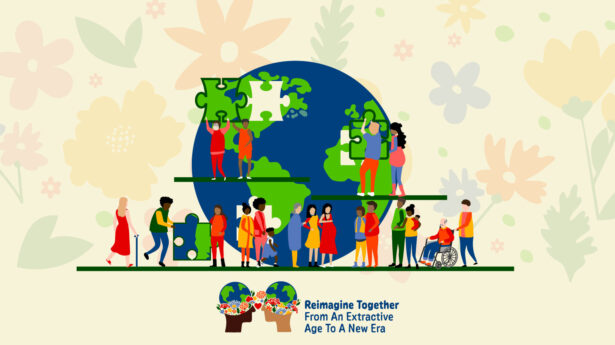The Unitarian Universalist Service Committee advances human rights through grassroots collaborations.
Peace is Possible: 3 Vital Lessons from MLK That Resonate Today

By Rev. Mary Katherine Morn on January 12, 2024
At UUSC, our mission affirms that the work of dismantling systems of oppression rises from our belief in the inherent dignity and power of all people. As an organization created from a faith tradition and influenced by the principles of values of Unitarian Universalism, putting love at the center of our work and vision for the world is fundamental. Together, these foundations for our work and relationships with partners help us remember the importance of one of Dr. Martin Luther King, Jr.’s most important principles:
“Power without love is reckless and abusive, and love without power is sentimental and anemic. Power at its best is love implementing the demands of justice, and justice at its best is love correcting everything that stands against love.”
The risks of love without power are unmistakable. Sentimentality, politeness, concern for upsetting the comfortable and privileged, a paralysis justified by a perception of powerlessness—these are all too common excuses for complacency, for turning our heads from violence and injustice.
On the other hand, the practice of love can be faith in action: “…implementing the demands of justice and correcting for everything that stands against love.” Dr. King’s analysis of intersecting oppressions and call for correcting the evils of racism, economic injustice, and militarization for the sake of love characterize his theory of change, and his call to us.
Racism, economic injustice, and militarization are sources of some of the world’s greatest human rights challenges. Hearing from our grassroots partners, I am reminded again of the legacy I hope to honor and support on this annual day of remembrance of Dr. King’s life and work.
UUSC seeks to honor Dr. King’s principles through our intimate partnerships with civil society organizations, partnerships that embody some core tenets of his legacy:
- Love without power is not enough: UUSC partners do not inhabit what most imagine when we think of powerful places and positions. Yet time and again our grassroots partners exercise dignity and power through campaigns for human rights like the Pacific Island Students Fighting Climate Change campaign for international accountability for climate justice.
- Oppressions are intersecting and compounding: UUSC partners remind us that racism, patriarchy, colonialism, and extractive capitalism create self-preserving systems. We see this in our work for migration justice, climate justice, and disaster justice. In a 2021 blog on responding to crises in Haiti, we address the need for intersectional and international responses to disaster.
- Anybody can serve: Though this holiday is set aside in the name of one man, that man reminded all of us that we, too, can serve the movement of justice.
“Everybody can be great…because anybody can serve. You don’t have to have a college degree to serve. You don’t have to make your subject and verb agree to serve. You only need a heart full of grace. A soul generated by love.”
Dr. King was not a lone hero, he was part of an organized and strategic movement for justice.
We still see movements for justice everywhere—from Gaza to Burma, Haiti to Tuvalu. The thread that ties these movements together is King’s undeniable tenet that all of us can have an indelible impact on the compounding and complex forms of oppression through the daily practice of mindfully marrying power and love.
Today, remembering his legacy and the principles that guided his work, I feel gratitude for powerful lovers today calling for peace and the justice that makes peace possible.
Image credit: Shutterstock

